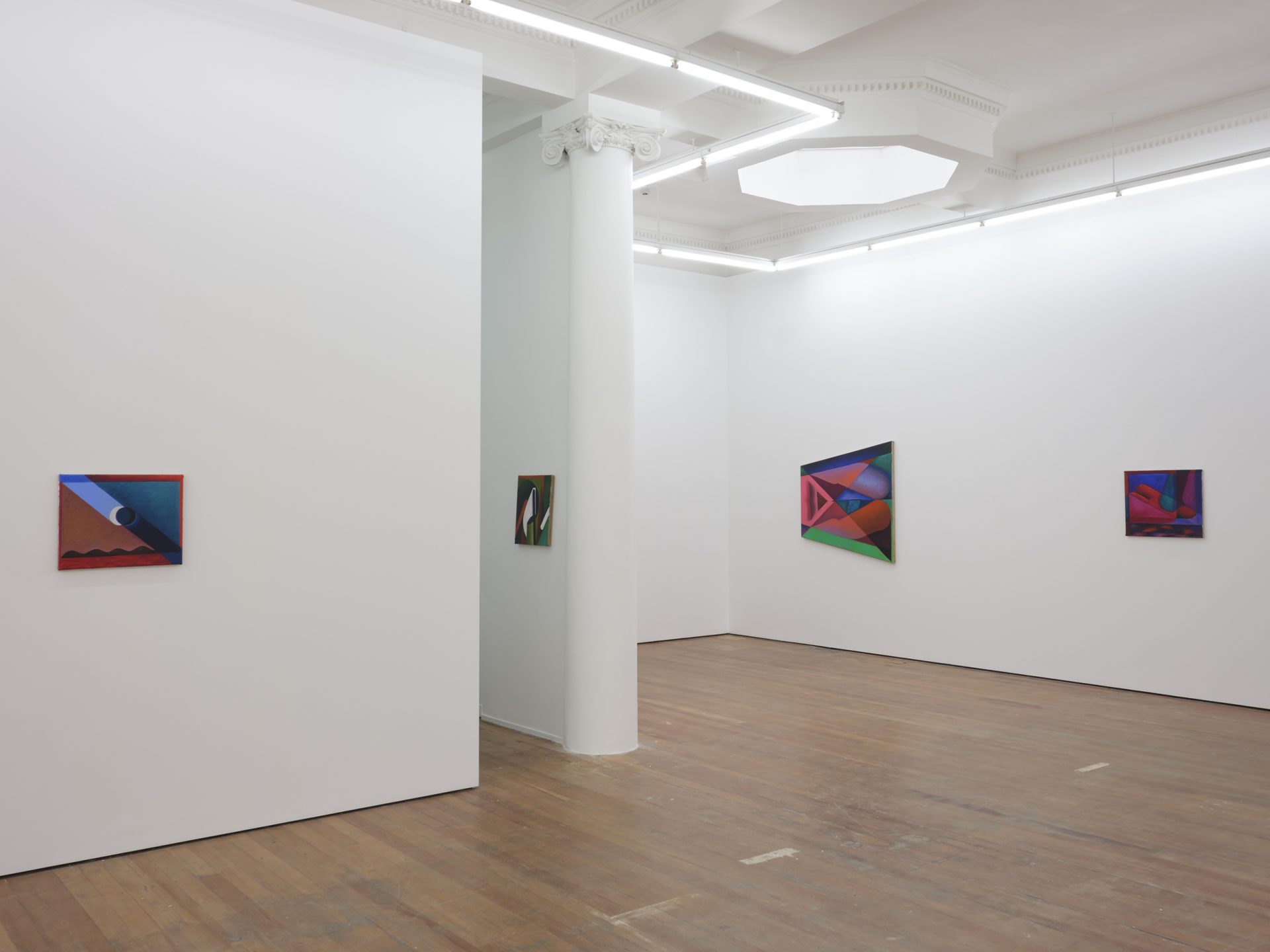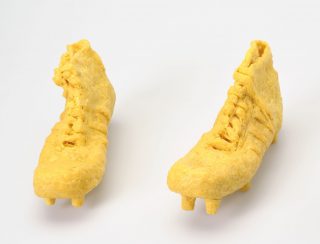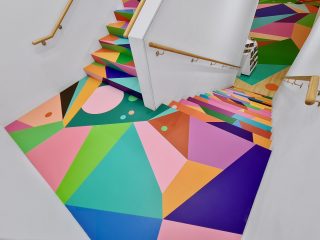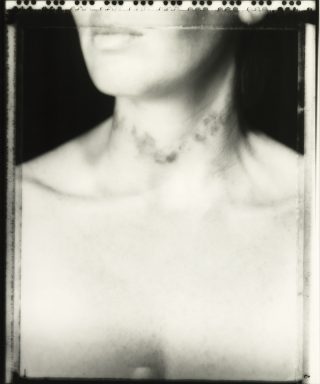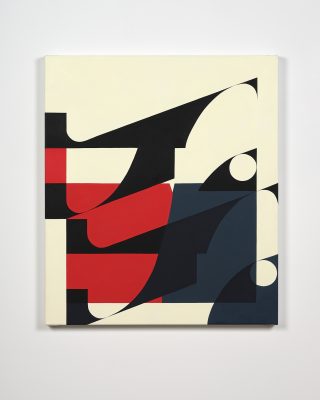These communities were also coming to terms with the fact that they were no longer a reviled minority and realised that, if they wished to keep an identity that had been created through legal and social oppression over the course of two centuries, they needed to work to maintain their unique culture and to remember its long history.[1]
—David Herkt, 2013
Is this feeling optimism? It is certainly pride—and this despite the fact that the Auckland Pride Festival hasn’t yet begun. It is the night of 27 January 2021 and I’m on a kind of visual high, verily bouncing as I walk between two exhibitions: Imogen Taylor’s Thirsty Work at Michael Lett and Daniel John Corbett Sanders’ Urban Nothing at RM. I’m by no means the only person to be making this short journey. All evening, people have been flowing between the shows, talking about them both. I’ve no idea whether the events were planned to coincide or whether the concurrence was a happy accident. Whatever the case, the effect is the same. This feels like a moment of queer excellence.[2]
Both Taylor and Sanders are members of the queer artistic community of Tāmaki Makaurau—fairly prominent members too. Taylor, born in 1985, has been practising for around a decade. Her paintings often refer to gender and sexuality, especially the artist’s homosexuality, doing so indirectly by way of code. She has favoured a style indebted to non-objective painting of the early 20th century, mixing in aspects of work by mid-century painters from Aotearoa and abroad. Robert and Sonia Delaunay, Sophie Taeuber-Arp, Colin McCahon, and Michael Illingworth all dance across her works. Queer figures, such as Romaine Brooks and Hannah Höch, hover in the wings. Taylor wryly comments to me, ‘I think sometimes my work falls into the trap of joking about Picasso.’
Sanders, born in 1994, is both an artist and the founder-director of Parasite, an artist-run space cum dealer gallery that opportunistically occupies the stairwell of the building in which they live on Karangahape Road. The space explicitly prioritises the work of LGBTQ+ artists, and it has of late produced some of the most exciting shows to take place in Tāmaki Makaurau, including Aliyah Winter’s HYPNO.MATRIX (2020) and Owen Connors’ For Future Breeders (2020–21).[3] The gallery’s presentation at the recent Auckland Art Fair was a clear highlight. As an artist, Sanders ranges across diverse media, often incorporating into their work found materials that are vulnerable to perishing.
Thirsty Work and Urban Nothing are linked by more than coincidences of timing, location, and community. Both shows see their makers move in new directions but to similar ends. Taylor and Sanders share a pronounced interest in the ways in which individuals can speak to communities, and in which we in the present might maintain an awareness of the past. Both would, I think, agree that there remains much work to be done to carve out safe spaces for queer people in Aotearoa, to say nothing of the wider world. Both would, I think, concur with David Herkt’s notion that as queerness becomes increasingly more acceptable, more ordinary, the responsibility to hold on to our unique cultures and histories does not diminish one jot. …
*
Essay commissioned by Auckland Art Gallery Toi o Tāmaki for Art Toi 3 (March 2021). Full text available online.
[1] David Herkt, ‘Queen City: A Secret History of Auckland’, Public Address, 25 January 2013, accessed 25 January 2021, https://publicaddress.net/speaker/queen-city/.
[2] I appreciate that the term ‘queer’ is not universally liked or accepted, not least because for some it has not successfully surpassed its status as a slur. I intend only positive associations.
[3] I wrote about both shows, in brief, for the Pantograph Punch.
